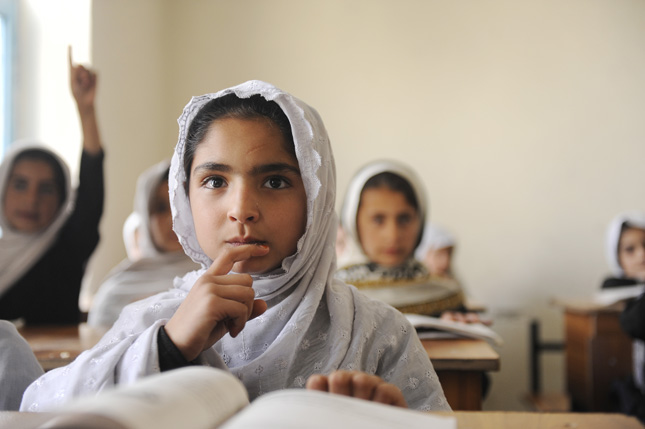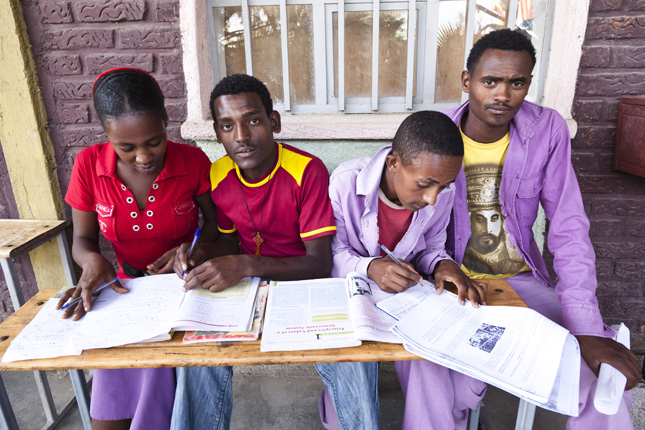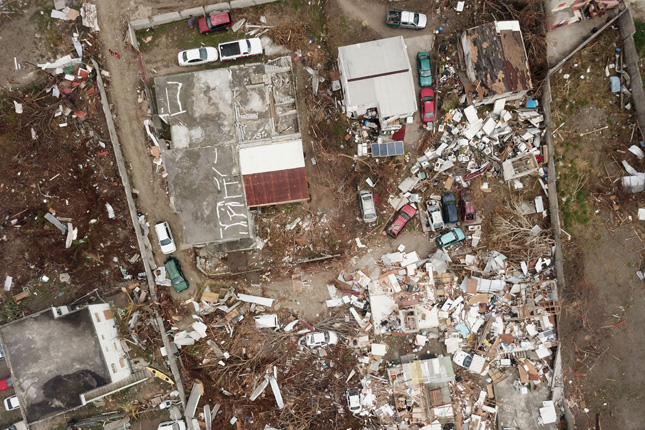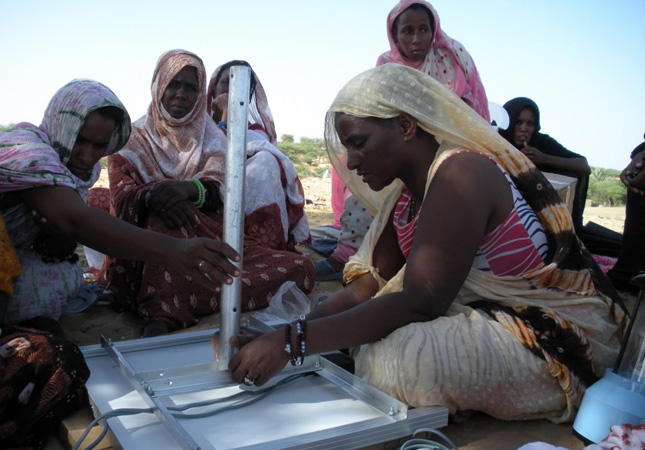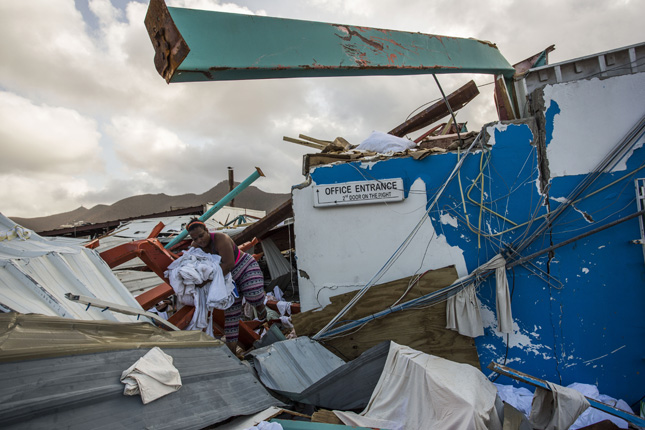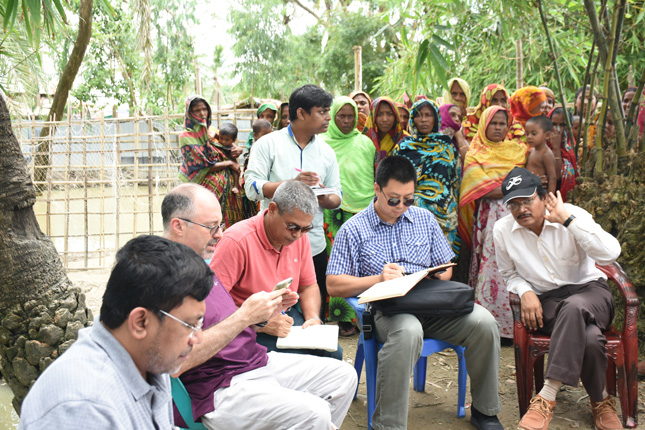-
One Country, Two Water Systems: The Need for Cross-Boundary Water Management in Hong Kong and Guangdong
›
In 2011, a group of Hong Kong water activists and researchers traveled the length of the Dongjiang (East) River, which stretches from northeast Guangdong Province into Hong Kong’s New Territories, to investigate the challenges facing the watershed. The Dongjiang basin, which provides nearly 80 percent of Hong Kong’s water supply, has suffered water shortages due to the region’s increasing urbanization and industrialization. They found unchecked wastewater discharges—from agriculture, poultry farms, chemical plants, tanneries, and even an open-air quartz quarry—were dangerously degrading water quality.
-
To Fight Climate Change, Educate and Empower Girls
›
Girls and women bear the brunt of climate change impacts. Natural disasters kill more women than men: an estimated 90 percent of those killed in some weather-related disasters were female. The effects of climate change on natural resources can also further exacerbate existing gender inequalities. Girls may be kept out of school to fetch water, as droughts drive them to walk farther and farther to find it. Seeking to stretch scarce household resources, families may marry off their daughters before the legal age and they may become more vulnerable to human trafficking after natural disasters.
-
Ensuring Today’s Youth Become Tomorrow’s Successful Adults
›
The future of global security will depend in large part on the fate of today’s 1.2 billion young people. Do youth between the ages of 15 and 24—a critical phase of life—possess the necessary social, physical, intellectual, and financial building blocks to underpin productive, healthy adulthoods? Or do they lack this solid base, putting them at risk of personal and social instability?
-
What Is Loss and Damage from Climate Change? First Academic Study Reveals Different Perspectives, Challenging Questions
›
Following a series of recent devastating extreme weather events – mudslides in Sierra Leone, flooding in south Asia, and severe storms hitting the Philippines and the Gulf of Mexico, many have called attention to the role of climate change in these disasters. The string of Atlantic hurricanes that has devastated the Caribbean has prompted fresh calls to make nations and communities more resilient to the effects of climate change, and especially to address “loss and damage” in island nations.
-
Energizing Equality in the Energy Sector
›
Every day, millions of people flip switches to turn on the lights or warm up the house, while millions of others light candles or wood-fired stoves. While most people know that the source of the energy we use varies according to where we live, many don’t realize that energy decisions are not gender neutral. Every country’s policy decisions about energy production and use have significant implications for women’s empowerment and the level of equality (or inequality) between women and men.
-
Can Caribbean Islands Really Adapt to Extreme Hurricanes?
›
“A monster”… “wreaking havoc”… “ripped through” the Caribbean and part of Florida: I heard these words as Hurricane Irma, the strongest Category 5 Atlantic hurricane on record, decimated the entire island of Barbuda and destroyed the four “most solid” buildings on St. Martin. And as I write this from the relative safety of Barbados, Hurricane Maria is on a similar path, leaving similar destruction in its wake. With winds of more than 160 miles per hour, Maria was the strongest storm to make landfall in Dominica. In a matter of hours, it devastated the country, regained its strength, and continued its onslaught on Puerto Rico and beyond.
-
Gaming Your Way to Disaster Risk Insurance
›
Fear fends off disaster, but does fear give us the tools to manage risk? Do we need to spend precious time learning complex risk management techniques? Perhaps not: learning disaster reduction techniques could be as easy as playing a game. “Well-designed games, like risk management measures, involve decisions with consequences. While games can never fully capture the complexity of climate risk management decisions, through gameplay these complexities can be revealed, discussed, and processed,” writes Pablo Suarez, the Climate Centre’s associate director for research and innovation.
-
Flooding in Bangladesh: Calling Out Climate Change From the High Ground
›
Floods have taken the lives of more than 100 people in northern Bangladesh over the last two weeks. Fully one third of the country has been flooded and some 600,000 people have been displaced in the riverine nation as a result of monsoons in India and Nepal. At international climate forums, Bangladeshi diplomats consistently decry such disasters as part of their urgent calls for action to mitigate changing weather patterns worldwide. But here in the country’s Rangpur-Kurigam region, both authorities and citizens have been reluctant to attribute these deadly disasters to the effects of climate change.
Showing posts from category Guest Contributor.


